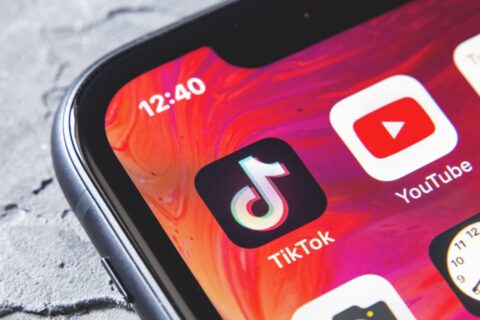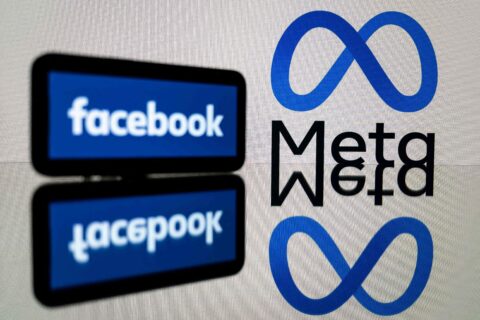“When is a bot a person?,” my colleague Kirsten asked after I learned that Polestar’s climate bot is more human than machine. Polestar launched its “Truth Bot” on […]
Flipboard stops tweeting, launches new podcast about decentralized social apps
Social magazine app Flipboard had already committed to joining the ‘fediverse‘ — the decentralized social web, which includes apps like Mastodon. Now, it’s doubling down on those ambitions […]
Apple pauses ads on X / Twitter after Elon Musk endorses antisemitic conspiracy
Apple is pausing its ad campaigns on X following Elon Musk’s posts endorsing an antisemitic conspiracy theory.
Change in X’s terms indicate EU researchers will get API access
After taking over Twitter last year, Elon Musk famously yanked API access from third-party apps and changed API pricing tiers to make it difficult for researchers to access […]
France’s Mistral dials up call for EU AI rules to fix rules for apps, not model makers
Divisions over how to set rules for applying artificial intelligence are complicating talks between European Union lawmakers trying to secure a political deal on draft legislation in the […]
What is TikTok’s watermelon ‘Filter for Good’?
A watermelon filter is taking over TikTok FYPs in an attempt to raise money for humanitarian relief in Gaza. The filter’s creator explains how it works.
Meta and Snap latest to get EU request for info on child safety, as bloc shoots for ‘unprecedented’ transparency
Meta and Snap are the latest tech firms to get formal requests for information (RFI) from the European Commission about the steps they’re taking to safeguard minors on […]
EU asks TikTok and YouTube for more info on how they’re safeguarding kids
The European Commission has sent another couple of formal requests for information to major platforms subject to the bloc’s rebooted online governance and content moderation rulebook, the Digital […]
Meta faces pressure from human rights organizations for its role in Ethiopian conflict
A new report from Amnesty International accuses Meta of having an inciting role in an ongoing conflict in Ethiopia’s Tigray region, pressuring the company to compensate victims and reform its content moderation.

Meta, and its platform Facebook, are facing continued calls for accountability and reparations following accusations that its platforms can exacerbate violent global conflicts.
The latest push comes in the form of a new report by human rights organization Amnesty International, which looked into Meta’s content moderation policies during the beginnings of an ongoing conflict in Ethiopia’s Tigray region and the company’s failure to respond to civil society actors calling for action before and during the conflict.
Released on Oct. 30, the report — titled “A Death Sentence For My Father”: Meta’s Contribution To Human Rights Abuses in Northern Ethiopia — narrows in on the social media mechanisms behind the Ethiopian armed civil conflict and ethnic cleansing that broke out in the northern part of the country in Nov. 2020. More than 600,000 civilians were killed by battling forces aligned with Ethiopia’s federal government and those aligned with regional governments. The civil war later spread to the neighboring Amhara and Afar regions, during which time Amnesty International and other organizations documented war crimes, crimes against humanity, and the displacement of thousands of Ethiopians.
“During the conflict, Facebook (owned by Meta) in Ethiopia became awash with content inciting violence and advocating hatred,” writes Amnesty international. “Content targeting the Tigrayan community was particularly pronounced, with the Prime Minister of Ethiopia, Abiy Ahmed, pro-government activists, as well as government-aligned news pages posting content advocating hate that incited violence and discrimination against the Tigrayan community.”
The organization argues that Meta’s “surveillance-based business model” and algorithm, which “privileges ‘engagement’ at all costs” and relies on harvesting, analyzing, and profiting from people’s data, led to the rapid dissemination of hate-filled posts. A recent report by the UN-appointed International Commission of Human Rights Experts on Ethiopia (ICHREE) also noted the prevalence of online hate speech that stoked tension and violence.
Amnesty International has made similar accusations of the company for its role in the targeted attacks, murder, and displacement of Myanmar’s Rohingya community, and claims that corporate entities like Meta have a legal obligation to protect human rights and exercise due diligence under international law.
In 2022, victims of the Ethiopian war filed a lawsuit against Meta for its role in allowing inflammatory posts to remain on its social platform during the active conflict, based on an investigation by the Bureau of Investigative Journalism and the Observer. The petitioners allege that Facebook’s recommendations systems amplified hateful and violent posts and allowed users to post content inciting violence, despite being aware that it was fueling regional tensions. Some also allege that such posts led to the targeting and deaths of individuals directly.
Filed in Kenya, where Meta’s sub-Saharan African operations are based, the lawsuit is supported by Amnesty International and six other organizations, and calls on the company to establish a $1.3 billion fund (or 200 billion Kenyan shillings) to compensate victims of hate and violence on Facebook.
In addition to the reparations-based fund, Amnesty International is also calling for Meta to expand its content moderation and language capabilities in Ethiopia, as well as a public acknowledgment and apology for contributing to human rights abuses during the war, as outlined in its recent report.
The organization’s broader recommendations also include the incorporation of human rights impact assessments in the development of new AI and algorithms, an investment in local language resources for global communities at risk, and the introduction of more “friction measures” — or site design that makes the sharing of content more difficult, like limits on resharing, message forwarding, and group sizes.
Meta has previously faced criticism for allowing unchecked hate speech, misinformation, and disinformation to spread on its algorithm-based platforms, most notably during the 2016 and 2020 U.S. presidential elections. In 2022, the company established a Special Operations Center to combat the spread of misinformation, remove hate speech, and block content that incited violence on its platforms during the Russian invasion of Ukraine. It’s deployed other privacy and security tools in regions of conflict before, including a profile lockdown tool for users in Afghanistan launched in 2021.
Additionally, the company has recently come under fire for excessive moderation, or “shadow-banning”, of accounts sharing information during the humanitarian crisis in Gaza, as well as fostering harmful stereotypes of Palestinians through inaccurate translations.
Amid ongoing conflicts around the world, including continued violence in Ethiopia, human rights advocates want to see tech companies doing more to address the quick dissemination of hate-filled posts and misinformation.
“The unregulated development of Big Tech has resulted in grave human rights consequences around the world,” Amnesty International writes. “There can be no doubt that Meta’s algorithms are capable of harming societies across the world by promoting content that advocates hatred and which incites violence and discrimination, which disproportionately impacts already marginalized communities.”
Elon Musk wants Twitter/X to be a dating app. It already is.
Elon Musk wants X to be an “everything app,” including a place for dating. He doesn’t understand that it was already that without him.

Twitter/X owner Elon Musk loves to announce lofty promises — and now he has one related to love itself: that X will soon be a dating app, as well as a replacement for LinkedIn, YouTube, and banks, among other things. In a recently leaked all-hands call, Musk said he wants X to be an “everything app.”
What Musk appears to not know is that Twitter is — or at least, was, before he took over and traffic and revenue crashed — already a fine place to meet people. I should know, because I met my partner on Twitter back in 2021:
And we’re not the only ones; check out Mashable’s culture reporter Tim Marcin on people who found love on Twitter. Musk is also ignoring the crowded dating app market, and the few that edge out above the main players like Tinder and Bumble.
Maybe Musk doesn’t care about these examples because he has nothing to do with them. He seems to only (in my opinion) appreciate ideas that exit his brain like a muffled fart.
What’s more is that the changes Musk has made to Twitter in the past year have made the platform worse. As Mashable’s Chris Taylor wrote in a story about Musk tanking Twitter in the last 12 months, Musk attempted to silence his critics while elevating conspiracy theorists; mass laid off employees, leading to a class-action lawsuit; and made users pay for verification, spurring confusion and even more disinformation.
If anything, dating is now harder to do on Twitter. Musk altered the DM settings so those who don’t pay can’t message you (though you can change it back). Daily sign-ups and active minutes have both dropped, meaning fewer people are making accounts and users are spending less time on the app. And, personally, I’ve seen an influx of spam and bot accounts following and DMing me and replying to others; they’re not exactly great dating candidates.
Want more sex and dating stories in your inbox? Sign up for Mashable’s new weekly After Dark newsletter.
Meanwhile, Musk appears to care more about people calling him “cis” than the fact that Twitter’s valuation is nosediving. Turning Twitter — sorry, “X” — into a dating app or “everything app” doesn’t make sense and doesn’t even seem feasible at this current moment.
I wouldn’t be surprised, however, if this goal of an everything app never comes to pass. Musk has made false promises in the past, and this could be just another one. Over the years, for example, he has claimed that Tesla would soon produce fully autonomous vehicles; that has yet to happen. This year, Musk also claimed that his brain implant device company Neuralink was preparing for human trials after testing on monkeys, and that no monkey died as a result of the trial. This isn’t true. Wired reported that some monkeys did die in Neuralink trials, after experiencing torturous conditions due to the implant.
Twitter was far from perfect before Musk took over, but it was the “digital town square” where folks would meet and chat. It’s only degraded in the past year, and if Musk thinks he can revive it with dating app functions, he’s mistaken. Honestly, just download Tinder.









